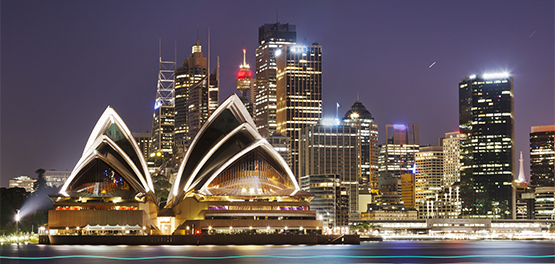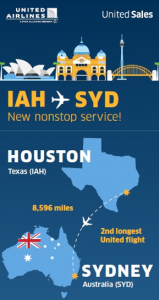
Tourism and Travel Industry Set to Continue Bolstering Economies Around the World
The tourism and travel industry is an important sector globally, contributing to the economic and job development throughout all regions of the world. In reference to the World Travel and Tourism Council’s 2017 Global Economic Impact and Issues report, tourism and travel “contributed US$7.6 trillion to the global economy and supported 292 million jobs in 2016”. Additionally, the industry’s direct influence on GDP grew 3.1%1, moving tourism and travel to the second fastest growing industry behind the information and communication industry.
The future of the industry is just as bright. In 2017, regions around the world are expected to grow directly because of the tourism and travel industry. Locations including Sub-Saharan Africa and Asia Pacific are set to experience GDP development of 4.4% and 6.1% respectively1.
Significant 2017 Travel & Tourism Trends
- Adventure Travel – By 2030, almost 60% travelers will arrive in a country with an emerging economy, states the Global Sustainable Tourism Council (GSTC). All of these tourists are interested in going to new places to develop an appreciation for different cultures, views, and ways of life. These travelers are in search of experiences where they can immerse themselves in a place.
- Gastronomy Travel – The World Tourism Organization reports that nearly 90% of countries around the world (and surveyed) believe food experiences are “driving force of tourism development.”
- Business Travel –Up $1.2 trillion (USD) in 2015, global business travel spending is predicted to grow to $1.6 trillion (USD) by 2020, according to the Global Business Travel Association (GBTA).

To handle the masses traveling for leisure and businesses, airlines continue to add dozens of new flights monthly. Most notably, United Airlines announced a new ultra-long flight between Houston and Sydney earlier in September. Beginning in 2018, this 8,596-mile flight will service customers from all across the U.S. as it is the only flight to Sydney leaving from Texas. Read United Airlines’ press release regarding their new, nonstop service between Houston and Sydney.
Tourism and Travel Industry Growth Impacts International Investing
If tourism trends continue, more people – especially Millennials who have the greatest amount of disposable income – will flock to destinations across the world. A variety of reasons are driving people to plan trips from the opportunity for new experiences to work-related jaunts.
When people travel, their money follows. Those investing in prime tourist destinations – which in today’s world expand far and wide to the most developed nations and to those still emerging – can directly and indirectly reap benefits of spending. A direct financial impact can be felt by investing in travel-related companies such as airlines, rental cars, hotels, restaurants, entertainment, and recreation, as well as outside goods and services like PR, maintenance, and energy. Indirect or induced financial results are defined by investments in agriculture, healthcare, communication, and real estate.
Diversified portfolios will take advantage of both types of investments. Commonwealth Funds offers a variety of mutual funds that invest in tourism-heavy locations including Africa, Australia, New Zealand, and Japan.
1Source: World Travel and Tourism Council’s 2017 Global Economic Impact and Issues.